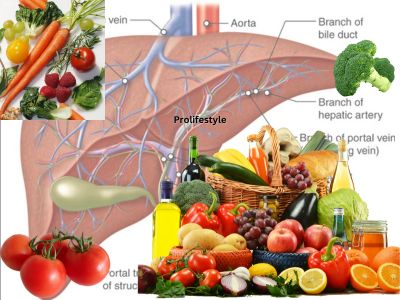

Healthy Liver health
Liver diet
Most people know that eating healthy is important to maintain overall health, but what they don’t realize is that eating healthy also goes a long way toward protecting their liver as well. Eating healthy can help the liver produce more bile and other essential digestive juices, reduce fat levels, and eliminate toxic waste products.
A healthy liver diet should include foods that are rich in vitamins, minerals, and plant-based protein. For example, fruits like oranges, apples, and grapes contain beneficial nutrients and antioxidants, while low-fat dairy products, whole-grain breads, and plenty of leafy greens are all excellent sources of B vitamins, zinc, and magnesium – all of which are necessary for a healthy, functioning liver. Additionally, whole grains and legumes provide complex carbohydrates and help with digestion.
Healthy diet plan
For a healthy diet plan for the liver, it is important to choose foods with little or no added sugar, because too much sugar can be highly detrimental to the liver over time. Sodium and unhealthy fats should also be avoided, as these can negatively affect the liver’s health.
It is also important to include plenty of fresh vegetables and lean proteins in your diet, as they provide essential vitamins and minerals that promote healthy liver function. Additionally, drinking plenty of water helps to flush out toxins and promote proper digestion.
Finally, it is important to reduce stress levels and get regular exercise for optimal health. Getting seven to eight hours of sleep is also wise, as it helps the body’s repair mechanisms and boosts liver health.
By following a healthy diet plan, you can help the liver do its job more efficiently. Taking good care of your liver not only helps extend your lifetime, but also ensures your health for many years to come.
Nutritional habits
Eating healthy is an important component in keeping your liver healthy. Having good nutritional habits can help protect liver health. Eating a balanced and healthy diet, avoiding unhealthy fatty and sugary foods, and drinking enough water are just a few of the essential habits for maintaining a healthy liver.
Consuming plenty of fresh fruits and vegetables that are low in sugar is a great way to support liver health. Increase your intake of fruits and vegetables that are high in antioxidants such as apples, artichokes, and spinach. Eating plenty of fiber will also help eliminate toxins in the gut and prevent them from entering the blood stream and damaging the liver.
In addition, reducing the amount of sodium in your diet can help reduce high blood pressure and limit damage to the liver. Low sodium eating habits include avoiding processed and restaurant made foods, and opting for more fresh, unprocessed items. Reducing your alcohol consumption will also help reduce stress levels on the liver.
Liver friendly food
In addition to nutritional habits, there are certain foods that are especially beneficial to the liver. Some of these include garlic, turmeric, ginger, beets, leafy greens, walnuts, fatty fish, grapefruit, cranberry, apples, and almonds.
Garlic is a great source of allicin, which can help boost the body’s natural detoxification process by aiding in the elimination of certain toxins from the liver.
Turmeric can help reduce inflammation in the body and protect against toxins and oxidative stress on the liver.
Ginger has been demonstrated to reduce inflammation and protect against free radical damage in the body.
Beets are high in natural antioxidants and can help protect the liver from oxidative damage.
Leafy green vegetables like kale and spinach are also high in antioxidants and can protect liver health.
Walnuts are a rich source of omega 3 fatty acids, which can help reduce inflammation and improve liver function.
Fatty fish like salmon, mackerel and sardines are high in essential fatty acids, which can help reduce inflammation in the body and protect liver health.
Grapefruit is high in antioxidants and helps support liver detoxification by boosting the body’s ability to eliminate toxins.
Cranberries contain compounds that can help protect the liver from damage caused by substances like alcohol and medications.
Apples are rich in polyphenols, which can help reduce inflammation and support liver health.
Finally, almonds are high in plant sterols, which can help prevent damage to the liver by reducing the amount of fat absorption in the body.
Healthy eating
Eating right is one of the best ways to protect your liver and maintain optimal liver health. Eating more foods that are known to be beneficial to liver health and avoiding the foods that can be damaging will go a long way in keeping your liver healthy.
Make sure to fill your plate with plenty of fresh fruits and vegetables, whole grains and lean proteins. Limit your intake of unhealthy fatty and sugary foods, and watch your alcohol consumption. Avoid processed foods and other items that are high in sodium.
Finally, don’t forget about your liver-friendly foods. Include options like garlic, turmeric, ginger, beets, leafy greens, walnuts, fatty fish, grapefruit, cranberry, apples, and almonds in your diet to support your liver health.
Eating healthy is one of the best things you can do to protect your liver and ensure it remains healthy. By making small changes to your diet, you can make sure you are doing your part in keeping your liver healthy and functioning properly.


